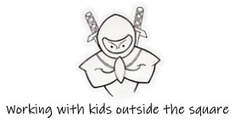Educational/Learning Assessments
Educational assessments are used to measure cognitive and educational abilities. They can provide valuable information and help to guide intervention. They can help with the following.
- Identifying children and young people with specific learning difficulties (such as dyslexia, dysgraphia and dyscalculia).
- Identifying difficulties with attention and focus.
- Identifying possible difficulties with language.
- Identifying intellectual impairment.
- Identifying difficulties with writing.
- Understanding a young person's cognitive strengths and weaknesses.
- It can give parents reassurance that their child/young person is achieving at the level of their peers.
- Identifying extra supports needed such as a reader/writer, use of computer and/or extra time during exams in high school.
- The report can support applications for Special Conditions when they are in their senior years.
- Recommendations will include strategies and if there is a need, referrals to other services such as a speech language therapist or occupation therapist.
The assessment process
Educational/learning assessments are carried out across two days and are office based. Along with standardised assessments, the following information is collected.
- A brief family history, development history and educational history.
- Current information about learning from their teacher.
Cognitive assessment - (approximately an hour to an hour and a half)
Cognitive Assessments provide a Full-Scale IQ score (FSIQ) as well as scores across the following domains, verbal comprehension, visual spatial skills, fluid reasoning, working memory and processing speed. They provide a snapshot of the young person's current level of intellectual development. When these scores are used as part of a comprehensive evaluation, they contribute to an understanding of their current strengths and any needs that can be addressed.
Administration is mainly tablet based which leads to a high degree of engagement from the young person.
The tools used are dependent on age.
Achievement Assessment - (approximately an hour and a half to two hours.)
Achievement assessments are used to obtain a general estimate of academic achievement and to identify strengths and weaknesses across curriculum areas such as oral language, reading, written expression and Mathematics.
The tool used is the Wechsler Individual Achievement Test – Third Edition (WIAT-III) – Australian and New Zealand Version. The results compare the young person to other Australian and New Zealand students their age. Administration of the WIAT-III is mainly tablet based which leads to a high degree of engagement from the young person.
Executive Function Screen
Executive functions are mental processes or skills that enable us to plan, organise ourselves, focus, pay attention, remember instructions, and juggle multiple tasks successfully. Executive functions are crucial for learning and carrying out day to day tasks.
- Questionnaire that the parents, teacher and young person are asked to complete.
- A brief family history, development history and educational history.
- Current information about learning from their teacher.
Cognitive assessment - (approximately an hour to an hour and a half)
Cognitive Assessments provide a Full-Scale IQ score (FSIQ) as well as scores across the following domains, verbal comprehension, visual spatial skills, fluid reasoning, working memory and processing speed. They provide a snapshot of the young person's current level of intellectual development. When these scores are used as part of a comprehensive evaluation, they contribute to an understanding of their current strengths and any needs that can be addressed.
Administration is mainly tablet based which leads to a high degree of engagement from the young person.
The tools used are dependent on age.
- The Wechsler Preschool and Primary Scale of Intelligence (WPPSI-IV) - children aged 2 years, 6 months through 7 years, 7 months.
- The Wechsler Intelligence Scale for Children Australian and New Zealand, (WISC-V - Au & NZ) - children aged 6 years through to 16 years 11 months.
- The Wechsler Adult Intelligence Scale (WAIS-IV) - Young people 16 years and older.
Achievement Assessment - (approximately an hour and a half to two hours.)
Achievement assessments are used to obtain a general estimate of academic achievement and to identify strengths and weaknesses across curriculum areas such as oral language, reading, written expression and Mathematics.
The tool used is the Wechsler Individual Achievement Test – Third Edition (WIAT-III) – Australian and New Zealand Version. The results compare the young person to other Australian and New Zealand students their age. Administration of the WIAT-III is mainly tablet based which leads to a high degree of engagement from the young person.
Executive Function Screen
Executive functions are mental processes or skills that enable us to plan, organise ourselves, focus, pay attention, remember instructions, and juggle multiple tasks successfully. Executive functions are crucial for learning and carrying out day to day tasks.
- Questionnaire that the parents, teacher and young person are asked to complete.
Cost
Please contact us for the rates as it does differ depending on the type of assessment and age. The learning assessment is offered at a reduced rate when combined with other assessments.
A deposit is required to start any assessment process. We do have options for payment. Please enquire if you require this.
A deposit is required to start any assessment process. We do have options for payment. Please enquire if you require this.
